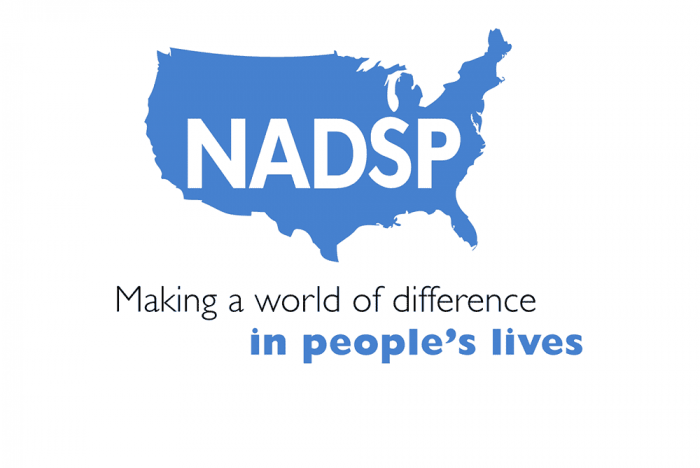It is not too late to register for NADSP’s Advocacy Symposium. On May 3 and May 4, the National Alliance for Direct Support Professionals (NADSP) will embark on its second national advocacy event to bring the direct support professional (DSP) perspective to the forefront of Congress and the Administration during a time of unprecedented workforce challenges. Hardships from the pandemic and recent legislation have provided new insights and opportunities for the direct support workforce that supports people with disabilities.
NADSP recognizes the previous absence and critical importance of lifting the voices of DSPs to federal policy-makers so that public policy can be informed by the people who are on the front-lines of supporting people with disabilities to live, work, and thrive in the community. On April 13, 2023, NADSP will provide DSPs from all across the country comprehensive advocacy virtual training. (No worries if you are registering late, as this training was recorded.) This will lead up to the 1.5-day virtual event in May that will culminate with virtual meetings with Congressional leaders and staff to educate and advocate on NADSP’s public policy priorities for 2023.
Advocacy Symposium and Legislative Meetings Training
Wednesday, May 3, 2023, 2:00 pm – 4:30 pm ET
State Team Meetings will extend beyond 4:30 pm ET
Legislative Meetings
Thursday, May 4, 2023, Time will vary by state and district
After registering, all individuals will receive a confirmation that they have registered. Final meeting times will be shared on March 4 from Soapbox Consulting. Please note that your meeting time will depend on your Zip Code and Congressional District.
RCPA members participated last year, and the event was a great success. If you have any questions regarding the event, please contact Carol Ferenz.


















